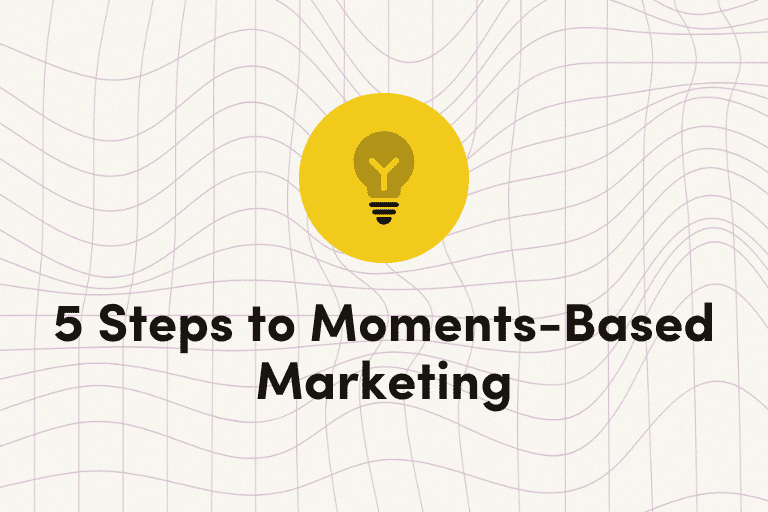The average enterprise today uses over 120 marketing tools in their marketing technology (martech) stack. It’s safe to say that building an effective, efficient marketing stack is challenging.
To help reduce the number of tools (and therefore the number of trainings, siloed data, and overall cost), martech consolidation should be a priority. Cutting various marketing platforms can be as tricky as finding new ones. Different teams use different tools for different purposes, so it’s important to find a tool that can perform the way multiple teams need it to.
We’ve created a guide to help you maximize the value of your customer communication platform with a series of questions to understand if a solution delivers on its promises. By focusing on data, design, delivery, and optimization, you’ll be able to direct conversations when you’re in the trenches exploring vendors, support deeper exploration of native features and/or functionality offered, and ultimately rule out what’s function versus fiction so you feel confident about your chosen solution.
This post is a preview but if you want to jump right to the full guide, it’s available here.
4 Measures to Evaluate Customer Communication Platforms
Let’s look closer at the four capabilities to look for in your platform and some questions included in the guide to discern important functionality, features, integrations, and more for each one.
1. Data
Data flexibility encompasses the platform’s ability to operate productively inside your existing technology environment. Flexibility goes beyond integration alone and characterizes how readily the platform ingests, activates, and feeds data throughout your broader stack.
Your martech platform’s ability to store data and make it actionable will dictate how well your team can send relevant communications to customers. Marketers need all the different layers of their data compiled and ready for use if they hope to reflect their customers’ real-time experiences.
Sample questions to ask:
- How readily does the platform integrate with other tools and data sources?
- What levels of personalization are possible?
- How flexible is the platform’s data storage schema?
- How does the platform support the advancement of each customer’s journey?
2. Design
Design speaks to the platform’s campaign management capabilities and the degrees to which your team can elevate messaging efficacy when efficiently creating and launching compelling cross-channel campaigns.
As modern marketers, 1:1 personalization across your customer database is essential. If a customer communication platform prevents you from maximizing a data-rich ecosystem, it will feel like you’re flying blind during campaign execution and management. Look for the platform that ticks off boxes for designing more enriched campaigns and getting them to market faster.
Sample questions to ask:
- How quickly can you build and send a campaign?
- How easily can cross-channel customer journeys be created?
- How can behavioral events be incorporated into campaigns?
- Are there templates to support journey building?
3. Delivery
Delivery speaks to the ability to effectively convey personalized messages to consumers across various channels—like email, SMS, and mobile push notifications—in a cohesive and coordinated manner.
This results in both greater efficiency— as marketers no longer have to switch between tools—and better customer experiences that lead to stronger engagement and retention. Brands with consistent, effective cross-channel marketing have customer retention rates ~91% higher than those that don’t.
Sample questions to ask:
- What level of engineering dependency does the tool require?
- How are audiences segmented while campaigns run?
- Does the platform maintain data export/import requirements?
- What communication channels are natively supported inside the platform?
4. Optimization
Optimization refers to fine-tuning campaigns with AI-powered segmentation and recommendations, experimentation, and insights driven by analytics.
Marketers have many factors to consider when personalizing campaigns at scale—customer profile data, message frequency, delivery timing, etc. Generic messaging just won’t cut it. Optimization can lead to better audience understanding, increased productivity and ROI, improved customer retention, and more.
Sample questions to ask:
- How is campaign effectiveness reported?
- Are there any A/B testing capabilities?
- How does the platform improve campaign performance with AI?
- How transparent is the AI with what data it uses to draw conclusions or make predictions?
Martech Consolidation Should Be the Opposite of Overwhelming
As Beth Comstock, former CMO and Vice Chair at General Electric said, “Marketing’s job is never done. It’s about perpetual motion. We must continue to innovate every day.” What that looks like is different for each brand, but if modern marketers have the right customer communication platform to facilitate insightful, responsive marketing experiences, the outcomes speak for themselves. Work is easier, demands are manageable, consumer expectations are fulfilled, and forward progress is possible..
Download the full guide for a comprehensive list of questions to help you find the best customer communication platform and decide who addresses data, design, delivery and optimization. And, if you’re curious about what makes Iterable a top-rated, AI-powered communication platform that thousands of brands trust, read our customers’ stories.
































